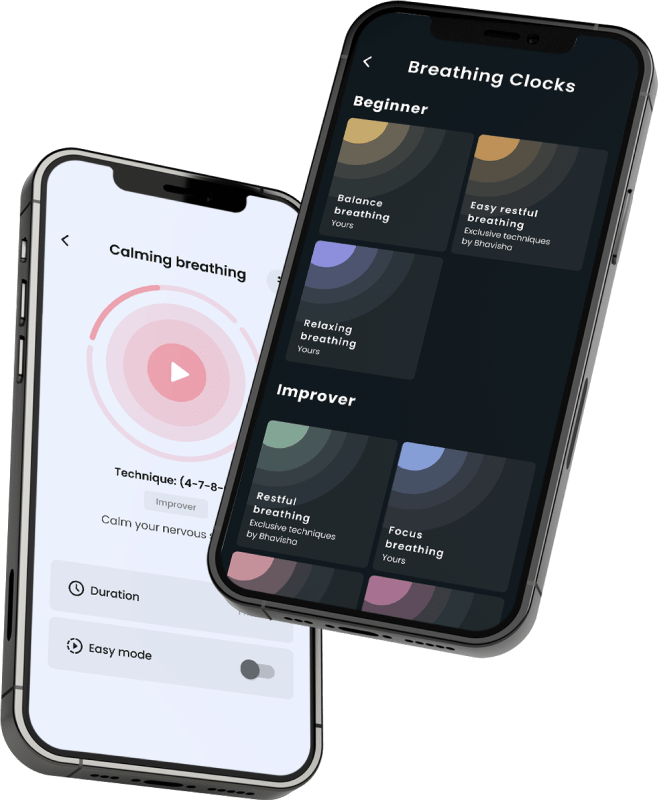Can Stress Cause Nosebleeds?

Can Stress Cause Nosebleeds?
A lot of people find stressing over their lives is unavoidable. Stress can be a natural reaction with all the pressures and uncertainties of today's world. But can stress cause nosebleeds? The short answer is yes, but there are other factors that can be at play, too. In this blog post, we will discuss causes of nosebleeds such as stress, lack of nutrients and vitamins, high blood pressure and allergies; and how to deal with one when it comes on.
Types of Nosebleeds
There are two different types of nosebleeds (medical term is epistaxis): anterior, which happens when the blood vessels in the front part of your nasal cavity break; and posterior, which occurs at the back or deepest point where it flows down into their throat.
Anterior Nosebleeds
In an anterior nosebleed, which account for 90% of nosebleeds, blood comes from the wall between your two nostrils. You might know this part of your nose as the septum and it is full of delicate blood vessels that can be easily damaged. Anterior nosebleeds are not usually serious - they might even only last for a few minutes before stopping on their own or with simple treatment at home.
Posterior Nosebleeds
Posterior nosebleeds start from inside the nasal cavity. When the artery branches responsible for supplying blood to your nose become damaged, peripheral vessels around them may tear and bleed. Blood flow from an anterior nasal haemorrhage will not typically enter the back of your throat; however as soon as you have a laceration or other damage to the arteries behind your septum, it's possible blood might seep into this area before being able to clot up fully. This type of nosebleed usually can't be stopped on its own and will need to be treated by your doctor or hospital. The good news is that posterior nosebleeds are not common, but if you have one make sure you know what's happening so it can get checked as soon as possible.
What Can Cause Nosebleeds?
The two most common causes of nosebleeds are a forceful impact to the nose, or dry hot air which causes the inside of your nose to dry out. Recurring nosebleeds an be caused by these factors:
- Allergies. Irritation to the inside of your nose from allergies such as hay fever can lead us to nose picking to try to get that itch. Try to resist the urge!
- Blowing your nose too hard. This can cause your blood vessels to rupture. Go gently with the tissue!
- Chemical irritants. If you expose yourself to cigarette smoke, or chemicals such as sulfuric acid, ammonia or gasoline you can be more at risk.
- Drug use. Snorting cocaine or other drugs can led to blood vessels rupturing inside your nose.
- Being a child! Children commonly can suffer from nosebleeds between the ages of 3 and 10, as children have more blood vessels in the nasal plexus.
- Pregnancy. Extra blood flow and hormonal changes can mean that pregnant women may suffer more than they usually would from nosebleeds.
Be aware that certain dietary supplements can thin your blood and make bleeding difficult to stop:
- Ginger
- Garlic
- Gingko Biloba
- Ginseng
- Vitamin E
- Feverfew
- Medications that thin your blood such as warfarin or aspirin can have the same effect.
What are Nosebleeds a Symptom of?
Frequent nosebleeds may sometimes be a sign of a lurking, more serious issue, such as:
- Bleeding or clotting disorders. Hereditary conditions such as haemophilia can be to blame for recurring nosebleeds.
- Tumours or cancer. Patients with tumours in the nose and sinuses have reported headaches, blocked noses and nosebleeds as an early symptom.
- High blood pressure. General high blood pressure and conditions such as congestive heart failure or hypertension can mean more nosebleeds for these sufferers.
How To Prevent Nosebleeds
Although the sight of blood can be scary, most nosebleeds are nothing more than a minor annoyance. To avoid getting one in the first place take note of these tips as advised by the NHS:
- Don't over-blow your nose and when you do need to, make sure it's gently.
- Try not to pick your nose. Keep your fingernails short to make sure you don't do any damage.
- Keep your home humidified - nosebleeds can come on in dry conditions.
- Be wary when playing sports and games which involve impact. Head guards could help protect your nose during rugby, for example.
- Be careful not to overuse nasal decongestants as too much spraying can cause bleeding.
How to Stop a Nosebleed
- Remain calm, firmly pinch the soft part of your nose just above your nostrils, with a tissue if preferred, for 10-15 minutes.
- Lean forward slightly and breath through your mouth to drain the blood into your nose - you don't want to be swallowing it down the back of your throat.
- Don't lie down as this can increase pressure in the blood vessels. Remember head above heart.
Posterior nosebleeds can be harder to treat as they usually involve larger blood vessels that are at the back of the nose and therefor harder to reach. If you cannot get your nosebleed to stop through the above steps, you should seek medical help by calling your GP, NHS 111 or in severe cases, go straight to hospital.
The Link Between Stress and Nosebleeds
While you're unlikely to have a nosebleed the next time you experience a stressful work meeting or have an argument with your partner, there is an indirect link which should be noted.
Prolonged periods of stress is one of the risk factors in high blood pressure or hypertension and this can be a direct cause of nosebleeds. The best way to know if you have hypertension is to check your blood pressure regularly either by a doctors or using a recommended at home testing monitor. It can be treated easily with medication but can be serious so you need to keep a medical eye on it.
Additionally, people experiencing stress are more likely to develop tick-like habits and picking your nose or nose blowing can be symptomatic of this. Try to leave your nose alone as picking will only exacerbate the problem!
Finally, feeling like you're under constant stress generally leads to inflammation in the body which in turn weakens the body's immune system against common viruses. Feeling stressed but also feel like you're always ill with colds, coughs and flu? There is a link. With these many of these viruses comes nasal tingling which can increase nosebleeds. It's important to stay healthy, eating a nutritious balanced diet and staying active to boost your immunity.
Treating a Stress-Related Nosebleed
If you think your nosebleeds may be triggered by stress in your life then there are simple steps you can take to destress and take back control.
Prioritising time by writing to do lists and things you want to achieve can help focus on those elements you can control in your life. Have those goals in mind and try to be single-minded enough to reach them. Remember to aim for baby steps to begin with.
Scheduling me-time to focus on yourself and what makes you happy will help relax and refresh your mind. Head to Yours app to find yoga classes to unwind, relaxation techniques and meditations to soothe away feelings of anxiety and stress and music to chill out to when you feel it's all getting too much. There are hundreds of classes to choose from so you'll never get bored and it's all tailored to your needs so you'll only see the good stuff recommended just for you.
Finally, the rewards from exercise are endless. Staying active will get the blood flowing and boosts endorphins to make you happy. This can be a simple 20 minute brisk walk, a relaxing yoga class or high-octane cardio class! Body and mind will thank you for it.
But if you feel that stress is affecting your everyday life and getting in the way of work and relationships you must talk to someone and get help. You don't have to suffer in silence.
When Should I Be Worried About Nosebleeds?
They should stop after a short while and usually aren't serious, however, you should seek medical help if:
- The nosebleed has occurred through a traumatic injury or event
- There’s a significant amount of blood - more than you'd expect for a nosebleed
- It is affecting your ability to breathe
- The bleeding lasts longer than 20 minutes even though you are applying pressure.
- If you feel you are suffering from too many nosebleeds then talk to your doctor. They could be a sign of something more serious and it's important to rule certain conditions out.
Frequently Asked Questions
Can you get nosebleeds from being tired?
There is no direct link but fatigue can be a sign of blood pressure problems or sinus infections which can cause nosebleeds.
How often is too often for nosebleeds?
Use your instincts as to whether you think you're suffering from too many nosebleeds. NHS advice to to talk to your GP if you experience nosebleeds frequently and aren't able to prevent them.
Can your nosebleed from dehydration?
Extreme heat and dryness in the air can cause the nasal membranes to dry out and become fragile and more prone to bleeding. Being in extreme heat can also mean you're not drinking enough water which can lead to dehydration. Keep hydrated with plenty of water when you're in hot climates.
Can you get a bloody nose from lack of sleep?
In short, no, but you will often feel tired from other nosebleed-causing conditions such as stress, high blood pressure and possible tumours.
Will a nosebleed stop on its own?
Most anterior nosebleeds will stop on their own or with some self-care steps in sitting down, applying pressure above the nostrils for 10-15 minutes.
Does ice help a nosebleed?
If the nose pinching doesn't work immediately or you want to try a different treatment, you can place ice, a bag of frozen peas or a chemical cold pack over the bridge of the nose. This will constrict the blood vessels and help stop the bleeding.
Is tilting your head back during a nosebleed bad?
It is not advised to tilt your head back during a nosebleed as it causes the blood to run backwards down the throat and could potentially flow down the airways and cause choking.
Can lack of protein cause nosebleeds?
Although rare, there are conditions in which abnormal amounts of proteins in the blood can cause blood vessels to become fragile. This means you may be more susceptible to the odd nosebleed.
Can a vitamin D deficiency cause nose bleeds?
A 2018 review article in The Journal of Steroid Biochemistry and Molecular Biology concluded that low vitamin D levels increase the risk of developing conditions including high blood pressure which may in turn account for increased bleeding.

